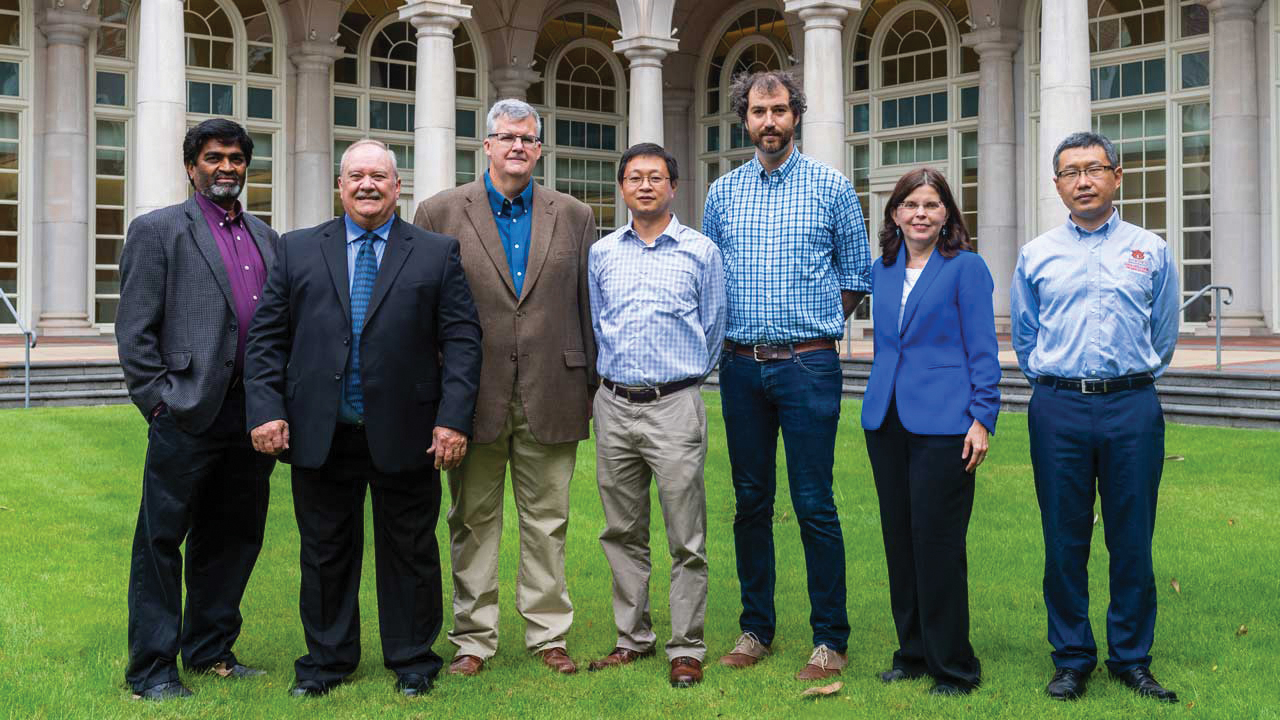Innovative Interdisciplinary Research: Expanding Recycling Options
By Cassie Montgomery

When it comes to recycling, not all plastics are treated equally.
Multilayer plastics, which make up the majority of food-packaging material, fall into an “other” category of plastics due to their composition. The same process that keeps food products, including meats, juices, cheeses, prepared foods and others safe during transportation and storage makes recycling “quite difficult,” said Edward Davis, Auburn University associate professor of materials engineering.
“The issue with multilayer structures is, quite often, they’re adhered together. In traditional thermal plastic recycling systems, there’s not a good way to separate those materials and so what happens to multilayer packaging, in general, is it just gets sent to a landfill. There’s nothing that you can really do with it to recycle it,” Davis said.
Faculty from Auburn’s Samuel Ginn College of Engineering, College of Forestry and Wildlife Sciences and College of Agriculture, along with faculty from Tuskegee University and Southern Union State Community College, are teaming up in an interdisciplinary effort to research the issue of recycling multilayer plastics with their project “Supercritical Extraction for the Elimination of End-of- Life Plastics.”
With the $1.9 million award, funded by the National Science Foundation, researchers will use the unique properties of supercritical carbon dioxide mixtures to enable the separation of the materials used in typical multilayer food packaging. If successful, the project will result in new technology that increases the recyclability of plastic waste, reduces the amount of plastic waste entering landfills and limits the environmental impact of food packaging.

